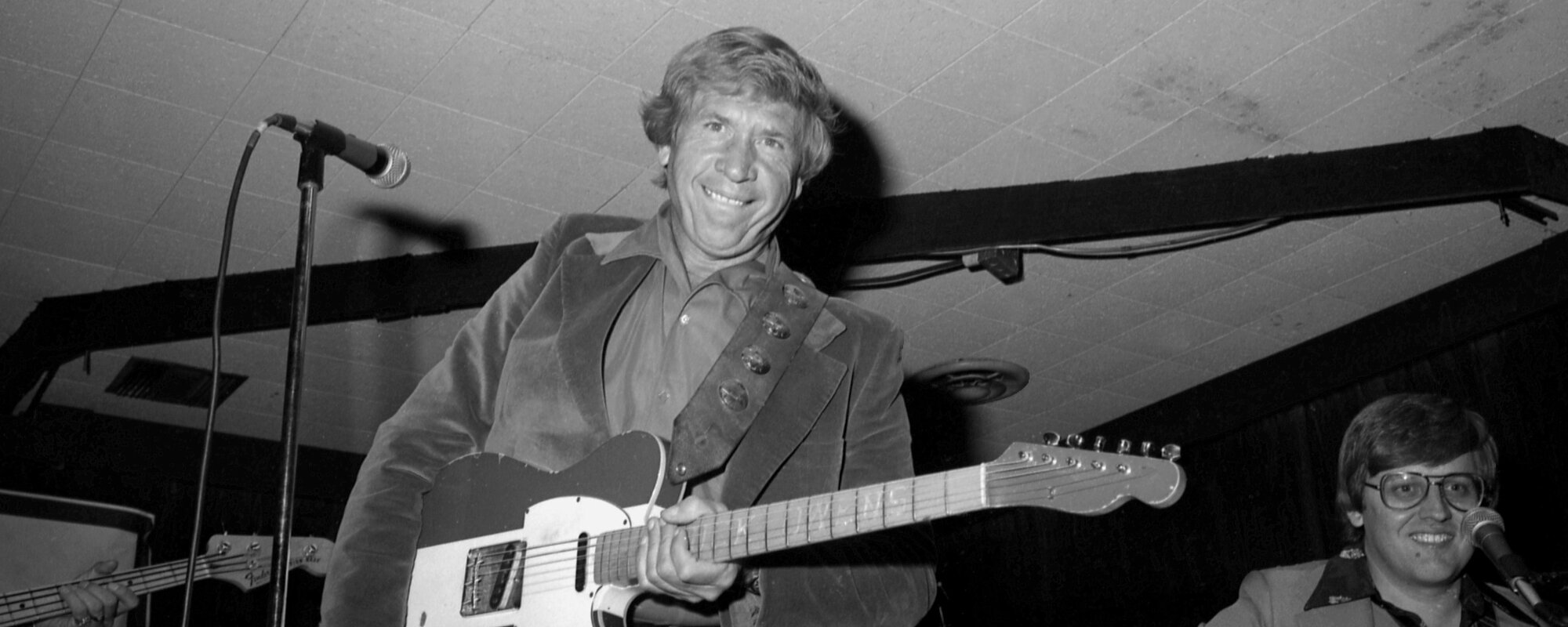Today, Don Schlitz turns another year older—not that time matters much when you’ve already written songs that will live forever. From Kenny Rogers’ “The Gambler” to Randy Travis’ “Forever and Ever, Amen,” the North Carolina native has stacked up a birthday cake’s worth of country classics that changed the genre one witty, heartfelt line at a time.
Videos by American Songwriter
Schlitz, born August 29, 1952, in Durham, North Carolina, is 73 years old today.
He grew up swathed in Southern storytelling traditions that later fueled his unparalleled penchant for songwriting. Schlitz moved to Nashville in the early 1970s and worked odd jobs while chasing his songwriting dream.
“Here’s what happened… I was 23 years old and had moved to Nashville when I was 20 to be a songwriter,” Schlitz told the Library of Congress. “I worked as a computer operator at Vanderbilt University and had about three hours of quiet time every night when I’d write songs. (Schlitz) wrote lots of horrible songs there—they were well‑metered and well‑rhymed but horrible.”
Don Schlitz Recalls Writing “Horrible” Songs
His breakthrough came in 1976 with “The Gambler,” which Kenny Rogers turned into a Grammy-winning global hit in 1978.
“It was a story, somewhat linear, and it had no ‘finished’ ending!” Schlitz told the Library of Congress. “It allowed the listener to be involved and respected the intelligence of the listener.”
Over the next two decades, Schlitz became one of country music’s most successful and celebrated writers, having penned more than 50 Top 10 hits for artists including Randy Travis, The Judds, Mary Chapin Carpenter, and Alison Krauss. While Randy Travis is credited with the neo-traditional country movement of the ’80s, it wouldn’t have happened without Schlitz’s songwriting.
Though he released a handful of his own albums, Schlitz’s greatest fame came from the timeless, relatable story songs he wrote for others. In addition to “The Gambler” and “Forever and Ever, Amen,” he also wrote “On the Other Hand” and “Deeper Than the Holler” for Travis, The Judds’ “Mama He’s Crazy.” He showcased his versatility with “Rockin’ with the Rhythm of the Rain.” Schlitz wrote the iconic “When You Say Nothing at All,” which was recorded by Keith Whitley and Alison Krauss. He penned Mary Chapin Carpenter’s “He Thinks He’ll Keep Her,” Alabama’s “Forty Hour Week (For a Livin’)” and Garth Brooks’ “Learning to Live Again.”
“Ideas will lead you to cleverness more than cleverness will lead you to an idea,” Schlitz told the Songwriters Hall of Fame. “Ten ideas a year … might be ideas we’ve all had, but they’re great because they come from your perspective.”
Don Schlitz Wants Writers to Read
He suggested switching things up. Make a sad song up-tempo. If it’s a sad song, bring it down a notch. But most importantly, make sure there’s hope.
“The most important thing a writer can do is read,” he told the Songwriters Hall of Fame. “I’ve written from source material things that did not happen to me, but I assumed those things for the character in my song.”
Schlitz’s songwriting contributions earned him induction into the Nashville Songwriters Hall of Fame (1993), the Songwriters Hall of Fame (2012), and the Country Music Hall of Fame (2017), along with multiple CMA and ACM Song of the Year awards and two Grammys.
Known for his humility and dedication to the songwriting craft, Schlitz remains admired as both a master storyteller and mentor, with a legacy built on songs that will resonate across generations.
“(Bob) McDill once told me, ‘You can’t write country music looking down your nose at it,’” Schlitz said.” “‘You have to respect your listener. Listeners are smart people.’”
(Photo courtesy of the Grand Ole Opry)












Leave a Reply
Only members can comment. Become a member. Already a member? Log in.